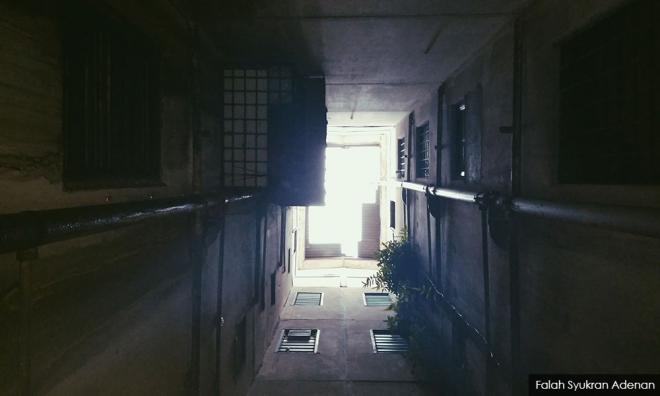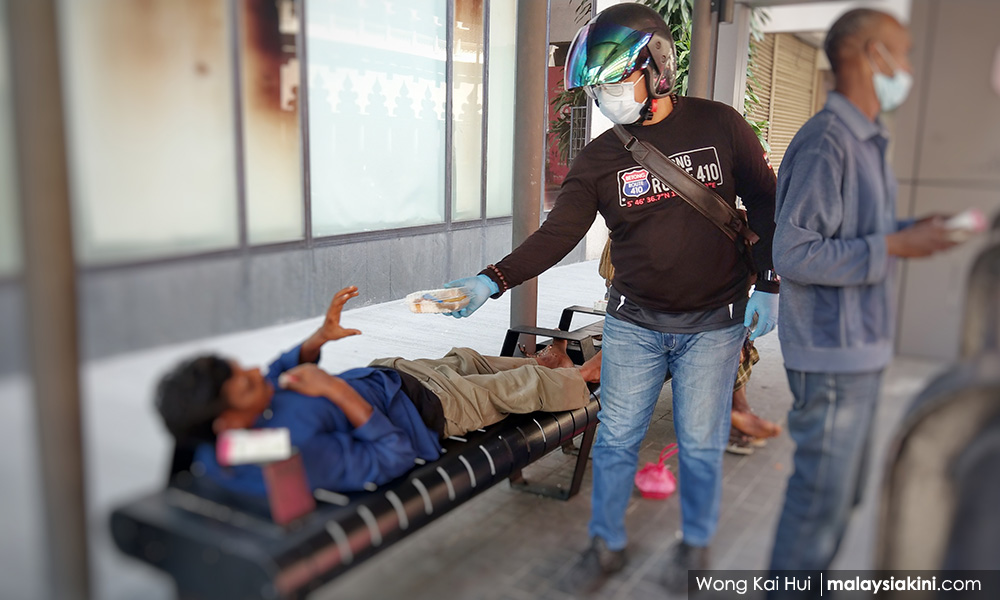Urban poverty - it’s real, it’s harsh and it’s extreme!

What a coincidence. Just as I was about to write this piece on urban poverty, I received a very riveting video on the state of homelessness in Los Angeles, California – the well-known county in America where famous Hollywood stars and affluent Americans reside in their palatial homes.
The video depicts the extreme state of urban poverty with the streets of LA being swamped by the homeless in their makeshift abodes of cardboard tents.
A recorded voice cried in shame: “This is LA, supposedly one of the wealthiest counties in America. Is this what America is coming to? This is a travesty! America is in trouble”.
So this is the US, the most developed nation on earth or is it still?
In my dear homeland of Sarawak, there is also an LA – Lubok Antu, a district in the Sri Aman division. I reckon Lubok Antu can be considered a semi-rural constituency today.
I have not visited Lubok Antu in a while but I can imagine what the local populace has to endure during these trying and challenging times. I will ask my friend, Lubok Antu MP Jugah Muyang, to fill me in later on the real situation in his area.
It’s possible the state of the homeless in Sarawak’s LA may not be as serious as California’s LA but the sufferings and hardship of the poor and destitute will not be any different.
Whether we consider it good or bad news, it is true that this Covid-19 movement control order has brought to the forefront the extent of urban poverty in our midst.
Yesterday morning, I drove past Kampung Cempaka New Village in Petaling Jaya which is less than 10 minutes from my home.
Outside a provision shop, I witnessed a long queue of housewives and elderly folks waiting to collect their food aid from a charitable organisation.
It was not a pretty sight to see so many in dire straits lining up for what I could envision to be a RM50 food basket of rice, cooking oil, instant noodles, tea bags and canned food. To the mothers in the queue, their children are hungry and they are grateful for whatever is given.
So what is the situation of urban poverty in Malaysia today? In recent years, urban poverty here has been considered as an increasingly visible phenomenon due to impacts of urbanisation.

Former prime minister Dr Mahathir Mohamad acknowledged this when he stated that “the rise of rural-urban migration and the people’s limited self-development skills have contributed to the growing population of the urban poor in the country”.
Speaking at the 2019 International Day for the Eradication of Poverty forum in October last year, Mahathir said the government could address this problem by providing training to help rural folk who migrate to urban areas to develop new skills and secure employment with better incomes.
It’s indeed sad that while the government has recognised urban poverty as a pressing issue, whatever plans put in place or implemented has done little to alleviate the hardship of this group among the urban populace.
Urban poverty, a dynamic condition of vulnerability due to rapid urbanisation, is real, harsh and extreme. The urban vulnerable groups are usually the low and moderate income people whose monthly income is RM2,000 and below, those with low education and engaged in low-skill and less productive sector.
Weighing in on the issue in a recent media interview, professor Denison Jayasooria of Universiti Kebangsaan Malaysia said that “while there is currently no official definition for urban poverty, he estimated that of the 75 percent of Malaysians living in urban areas, some 30 percent are likely to fit into this bill."
Jayasooria also wants to change the face of urban poverty.
“It is not the homeless, hungry street person that comes immediately to mind. Instead, it is the odd-job man or pasar malam (night market) trader living in a public housing flat,” he pointed out.
To the professor, the urban poor are the people with a family of four earning less than RM2,000 a month and have less than RM5,000 in savings – someone who will not be able to survive three months without work.
Jayasooria is correct, as it is now proven that the daily wage earners and hawkers, among others, are also dependent on food aid to survive during this time.
Add in the disabled, those in our homes for the elderly and orphanages and the many stranded foreign workers, Malaysians have to reach out and be generous as they never have been before.
As we know now, many are living from hand-to-mouth day in and day out, it is probably true that urban poverty is far more harsh and extreme than rural poverty.
So let us count our blessings if we have a roof over our head, some savings to tide over difficult times such as now and a job to return to after this MCO is over.
Stop complaining and cut down on our whining. We are already more fortunate than many of our fellow Malaysians out there.
FRANCIS PAUL SIAH heads the Movement for Change, Sarawak (MoCS) and can be reached at sirsiah@gmail.com. - Mkini
✍ Credit given to the original owner of this post : ☕ Malaysians Must Know the TRUTH
🌐 Hit This Link To Find Out More On Their Articles...🏄🏻♀️ Enjoy Surfing!



















Post a Comment